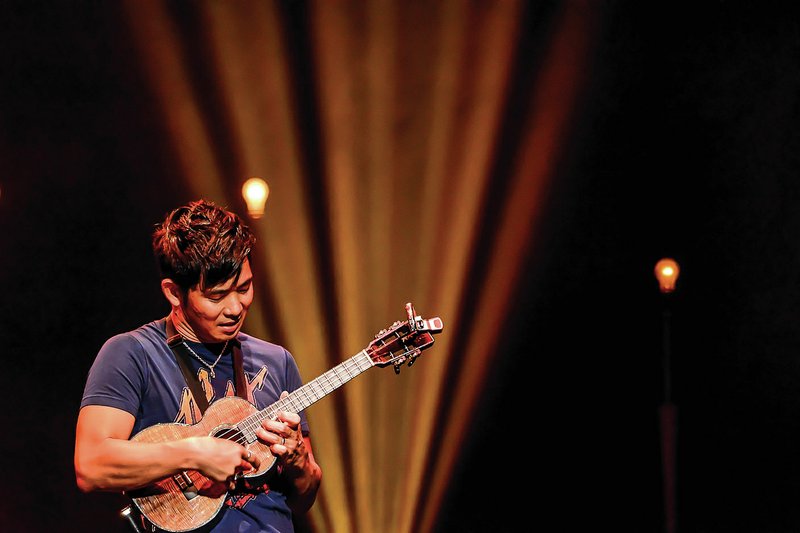What comes to mind at the mention of a dynamic, evocative instrument? The piano? The violin? How about the ukulele?
"I think that surprises a lot of people because when you think of ukulele, you think of it as kind of soft, charming, a very humble instrument," says ukulele virtuoso Jake Shimabukuro. "The ukulele can be quite expressive, and that's one of the things I try to really take advantage of -- to play really soft at certain moments but also really digging in and showcasing how, not just loud, but how big the instrument can get sonically."
FAQ
Jake Shimabukuro
WHEN — 7 p.m. Wednesday
WHERE — Walton Arts Center in Fayetteville
COST — $14-$30; limited tickets remain
INFO — 443-5600 or http://waltonartsce…">waltonartscenter.org
Shimabukuro returns to the Walton Arts Center on Wednesday with his fast finger work, this time backed by a bass player and guitarist. When he was included in the 10x10 Arts Series in 2014, Shimabukuro performed completely solo with his ukulele, so even those who have seen him before can expect a fresh show.
"If I'm playing a ballad, I really try to focus on the melody of the tune -- do whatever I can to bring that out and make it as easy to listen to as possible," he shares. "And if I'm playing a more up-tempo tune, the ukulele is very percussive, so I almost treat it like a drum solo where the approach becomes very percussive. I think that helps to drive the song and make it a bit more exciting. I have a balance of very intimate moments but at the same time, some very up-tempo, fun things."
Part of Shimabukuro's speed and agility grew from his time on the drum line in high school marching band. Though he had played the ukulele since the age of 4, he found the traditional method -- bending at the elbow, strumming with the whole arm -- to be slowing him down. By applying the sticking technique of moving the action to the wrist, he was able to gain more speed and endurance in his strumming.
Other instruments and musical styles influenced his playing, but Shimabukuro also found inspiration in other forms of artistic, and even athletic, expression.
"Dancers I always thought were so amazing -- how their body is the instrument and they have control of every part of their body to react and respond to anything they hear or feel," he muses. "I thought if I could incorporate some of that into playing...like if you watch a really gifted piano player or violinist or guitar player, if you watch their fingers and their hands and their arms, that part of their body is dancing. They're moving and reacting. So even though you're not playing the ukulele with your feet, there's still a way to incorporate some kind of movement through your lower body that would enhance what you're doing through your instrument. Because every part of your body can feel something and can contribute to whatever you're performing."
-- Jocelyn Murphy
jmurphy@nwadg.com
NAN What's Up on 10/13/2017
